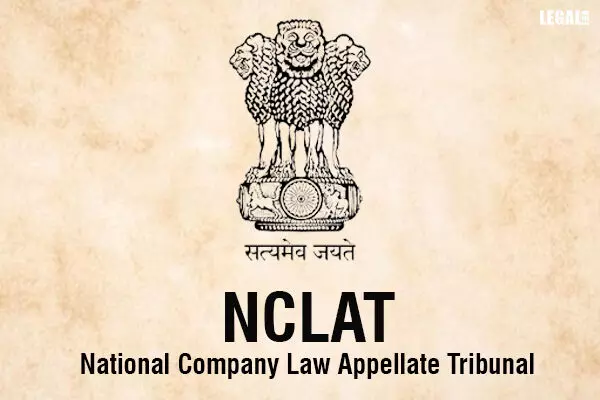- Home
- News
- Articles+
- Aerospace
- Artificial Intelligence
- Agriculture
- Alternate Dispute Resolution
- Arbitration & Mediation
- Banking and Finance
- Bankruptcy
- Book Review
- Bribery & Corruption
- Commercial Litigation
- Competition Law
- Conference Reports
- Consumer Products
- Contract
- Corporate Governance
- Corporate Law
- Covid-19
- Cryptocurrency
- Cybersecurity
- Data Protection
- Defence
- Digital Economy
- E-commerce
- Employment Law
- Energy and Natural Resources
- Entertainment and Sports Law
- Environmental Law
- Environmental, Social, and Governance
- Foreign Direct Investment
- Food and Beverage
- Gaming
- Health Care
- IBC Diaries
- In Focus
- Inclusion & Diversity
- Insurance Law
- Intellectual Property
- International Law
- IP & Tech Era
- Know the Law
- Labour Laws
- Law & Policy and Regulation
- Litigation
- Litigation Funding
- Manufacturing
- Mergers & Acquisitions
- NFTs
- Privacy
- Private Equity
- Project Finance
- Real Estate
- Risk and Compliance
- Student Corner
- Take On Board
- Tax
- Technology Media and Telecom
- Tributes
- Viewpoint
- Zoom In
- Law Firms
- In-House
- Rankings
- E-Magazine
- Legal Era TV
- Events
- Middle East
- Africa
- News
- Articles
- Aerospace
- Artificial Intelligence
- Agriculture
- Alternate Dispute Resolution
- Arbitration & Mediation
- Banking and Finance
- Bankruptcy
- Book Review
- Bribery & Corruption
- Commercial Litigation
- Competition Law
- Conference Reports
- Consumer Products
- Contract
- Corporate Governance
- Corporate Law
- Covid-19
- Cryptocurrency
- Cybersecurity
- Data Protection
- Defence
- Digital Economy
- E-commerce
- Employment Law
- Energy and Natural Resources
- Entertainment and Sports Law
- Environmental Law
- Environmental, Social, and Governance
- Foreign Direct Investment
- Food and Beverage
- Gaming
- Health Care
- IBC Diaries
- In Focus
- Inclusion & Diversity
- Insurance Law
- Intellectual Property
- International Law
- IP & Tech Era
- Know the Law
- Labour Laws
- Law & Policy and Regulation
- Litigation
- Litigation Funding
- Manufacturing
- Mergers & Acquisitions
- NFTs
- Privacy
- Private Equity
- Project Finance
- Real Estate
- Risk and Compliance
- Student Corner
- Take On Board
- Tax
- Technology Media and Telecom
- Tributes
- Viewpoint
- Zoom In
- Law Firms
- In-House
- Rankings
- E-Magazine
- Legal Era TV
- Events
- Middle East
- Africa
NCLAT Rules Section 12A Applications Not Permissible During Liquidation Period

NCLAT Rules Section 12A Applications Not Permissible During Liquidation Period
The National Company Law Appellate Tribunal (NCLAT) Principal Bench, comprising Justice Ashok Bhushan (Chairperson), Barun Mitra (Technical Member), and Arun Baroka (Technical Member), has ruled that an application under Section 12A of the Insolvency and Bankruptcy Code (IBC) is not permissible during the liquidation period.
Section 12A allows for the withdrawal of an insolvency application with the approval of ninety percent of the Committee of Creditors (CoC). The tribunal emphasized that Section 12A is designed to facilitate withdrawal during the Corporate Insolvency Resolution Process (CIRP), before insolvency resolution or liquidation proceedings begin. Once liquidation starts, the CoC, which is crucial for such approvals, no longer exists in its original capacity.
“In view of the clear statutory scheme delineated by Section 12A, Section 33, and Regulation 2B of the Liquidation Regulations, we are of the view that during the liquidation period, an application under Section 12A is not permissible.”
The Corporate Insolvency Resolution Process (CIRP) for Hind Motors India Ltd. (Corporate Debtor) was initiated under Section 10 of the IBC by the debtor itself. An order for liquidation was subsequently issued. The promoter and former director, Mr. Ashish Mohan Gupta, challenged the liquidation order, but his appeal was dismissed. During the liquidation proceedings, Mr. Gupta sought to stay the sale of assets, arguing that his scheme under Section 230 of the Companies Act, 2013, should be considered. This request was rejected, and his subsequent appeals were also dismissed.
Later, depositors of the Corporate Debtor filed an application under Section 12A, requesting the Liquidator to convene a CoC meeting to consider the application. The Liquidator contended that this application was not maintainable and proceeded with issuing a Sale Notice. The NCLT Chandigarh bench stayed the Sale Notice, but it was withdrawn on January 6, 2022, leading to a new Sale Notice. The NCLT dismissed all applications, prompting the Appellants to approach the NCLAT.
The NCLAT examined whether Section 12A, which permits the withdrawal of insolvency applications during CIRP, could be applied during liquidation. It noted that Section 12A allows for withdrawal only during CIRP and not during liquidation. Once liquidation begins, the CoC is no longer present to approve such withdrawals, and the statutory framework does not accommodate this process during liquidation. Regulation 2B of the IBBI (Liquidation Process) Regulations, 2016, permits compromises or arrangements during liquidation but does not extend to withdrawals under Section 12A.
The tribunal concluded that the statutory framework does not allow for the withdrawal of an application under Section 12A once liquidation has commenced and affirmed the lower authority's decision.
The appeal was therefore dismissed.



